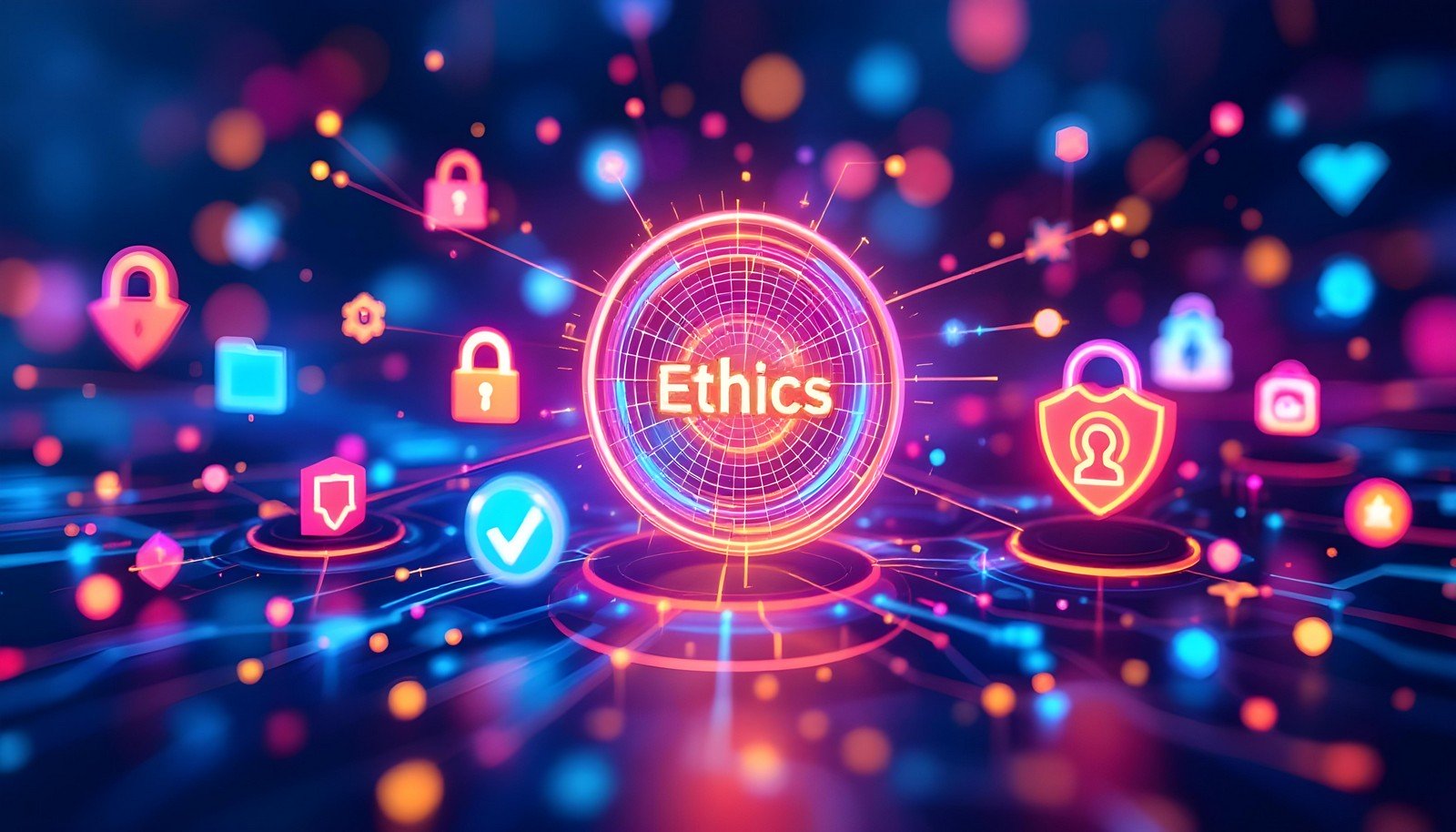Digital Ethics

Quick Navigation:
- Digital Ethics Definition
- Digital Ethics Explained Easy
- Digital Ethics Origin
- Digital Ethics Etymology
- Digital Ethics Usage Trends
- Digital Ethics Usage
- Digital Ethics Examples in Context
- Digital Ethics FAQ
- Digital Ethics Related Words
Digital Ethics Definition
Digital ethics refers to the principles and practices that guide responsible use and development of technology, ensuring innovations align with values like fairness, privacy, accountability, and transparency. This field addresses ethical considerations surrounding AI, data privacy, and algorithmic decision-making, helping society balance the benefits of technological advancements with moral responsibilities. It involves multidisciplinary approaches, from philosophy to computer science, to safeguard human rights in digital contexts.
Digital Ethics Explained Easy
Think of digital ethics like rules for using a new toy so everyone can enjoy it without anyone getting hurt. Digital ethics are the rules for using technology fairly and safely, making sure we protect people's rights and keep everyone’s information private.
Digital Ethics Origin
The concept of digital ethics emerged in response to rapid technological advancements in the late 20th century, as society recognized the need to address ethical concerns related to digital technology and AI. Early discussions began around computer ethics, evolving into digital ethics as the digital landscape expanded.
Digital Ethics Etymology
The term "digital ethics" combines "digital," referring to technology and data, and "ethics," from the Greek "ethos," meaning character or moral conduct.
Digital Ethics Usage Trends
Digital ethics has gained significant attention over the last decade, with growing discussions around data privacy, AI bias, and ethical AI. This trend is fueled by high-profile incidents involving misuse of data and biased algorithms, pushing governments, organizations, and technologists to adopt ethical guidelines for responsible AI development and data handling.
Digital Ethics Usage
- Formal/Technical Tagging:
- Ethics
- Technology
- Responsible AI - Typical Collocations:
- "digital ethics principles"
- "ethical AI practices"
- "data privacy in digital ethics"
- "accountability in AI"
Digital Ethics Examples in Context
- Organizations implementing ethical AI guidelines to prevent bias in algorithmic decisions.
- Digital platforms enforcing privacy policies to protect user data.
- Governments creating laws to safeguard citizens’ rights in the digital age.
Digital Ethics FAQ
- What is digital ethics?
Digital ethics is the practice of using technology responsibly to protect privacy, ensure fairness, and maintain accountability. - Why is digital ethics important?
It prevents misuse of technology, protects individuals' rights, and promotes fairness in technological innovation. - How does digital ethics impact AI?
It guides AI development to prevent biases, ensure transparency, and safeguard user privacy. - What are some key principles of digital ethics?
Key principles include fairness, accountability, transparency, and respect for privacy. - How does digital ethics relate to data privacy?
Digital ethics emphasizes protecting user data from unauthorized access and misuse. - Are there laws for digital ethics?
Yes, various regulations, like the GDPR, enforce ethical standards in data handling and privacy. - What is ethical AI?
Ethical AI refers to developing AI systems that respect human rights and avoid biases. - How can companies implement digital ethics?
Companies can adopt ethical guidelines, conduct impact assessments, and ensure transparency in data handling. - How does digital ethics affect everyday internet users?
It protects their data and ensures fair treatment by digital services. - What role do ethics play in cybersecurity?
Ethics guide security measures, ensuring protection against data breaches and respecting privacy.
Digital Ethics Related Words
- Categories/Topics:
- Data Privacy
- AI Ethics
- Cybersecurity
- Digital Accountability
Did you know?
The Cambridge Analytica scandal, where data from millions of Facebook users was misused for political ads, highlighted the importance of digital ethics, pushing for more stringent data privacy and ethical standards in technology.
PicDictionary.com is an online dictionary in pictures. If you have questions or suggestions, please reach out to us on WhatsApp or Twitter.Authors | Arjun Vishnu | @ArjunAndVishnu

I am Vishnu. I like AI, Linux, Single Board Computers, and Cloud Computing. I create the web & video content, and I also write for popular websites.
My younger brother, Arjun handles image & video editing. Together, we run a YouTube Channel that's focused on reviewing gadgets and explaining technology.



Comments powered by CComment